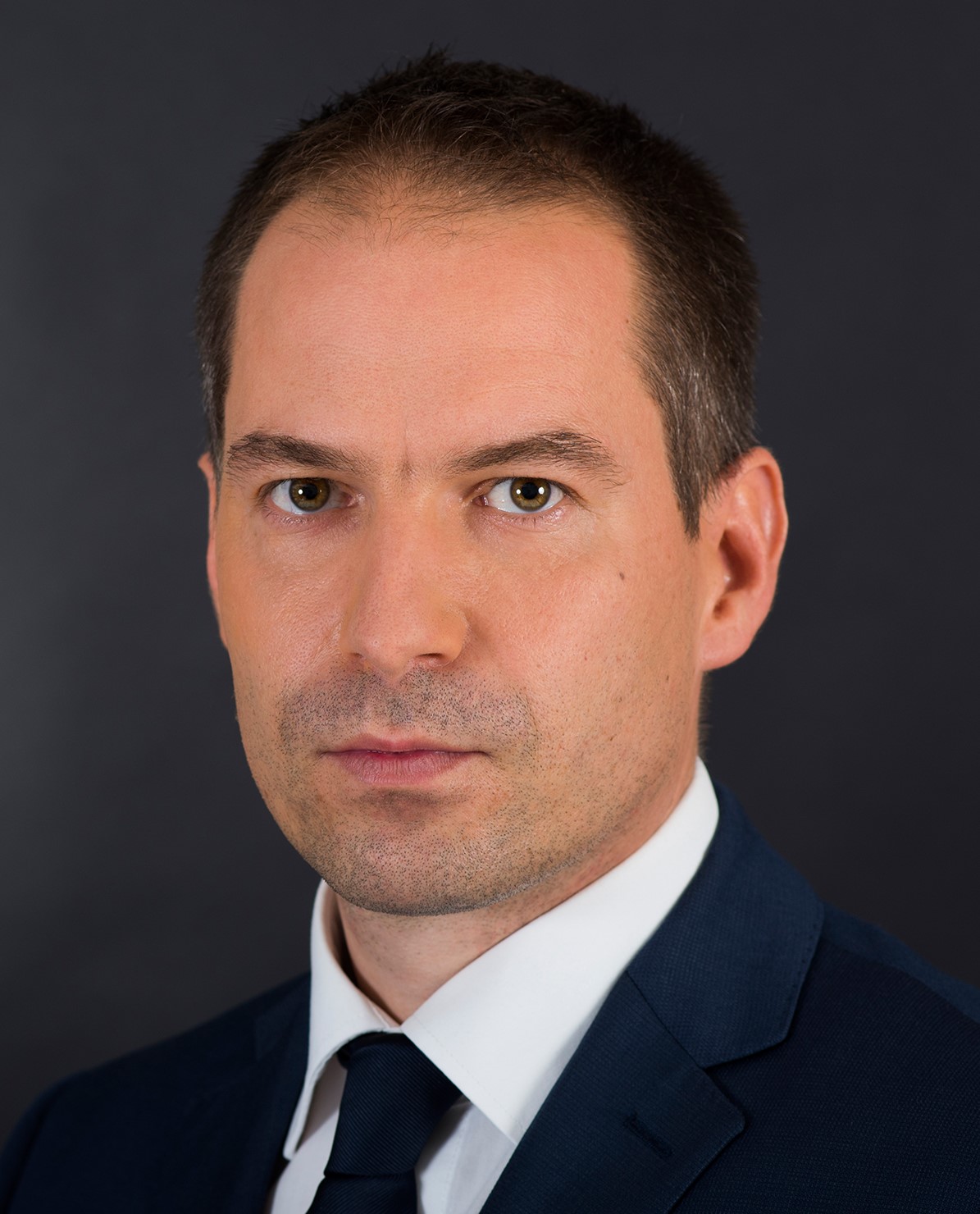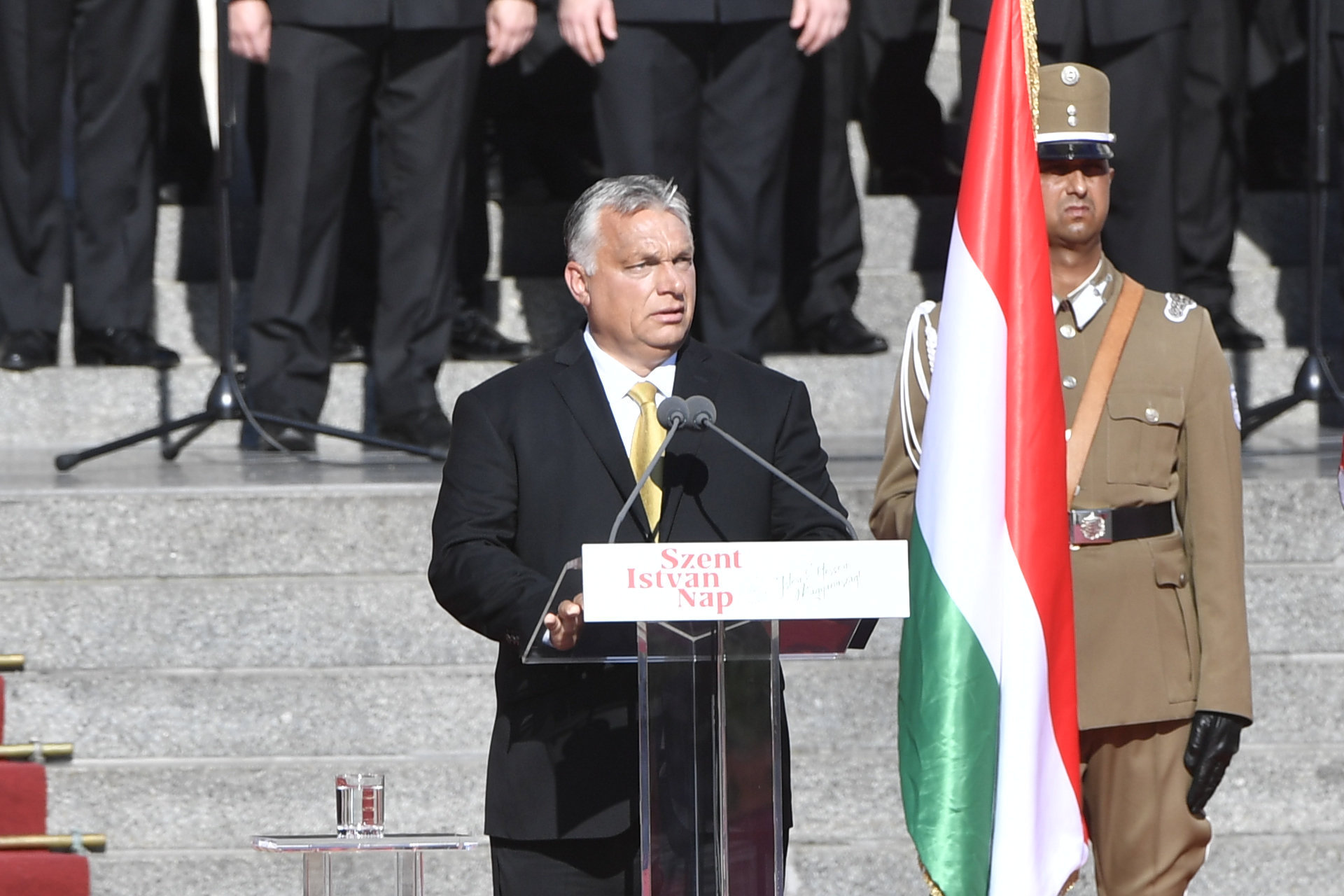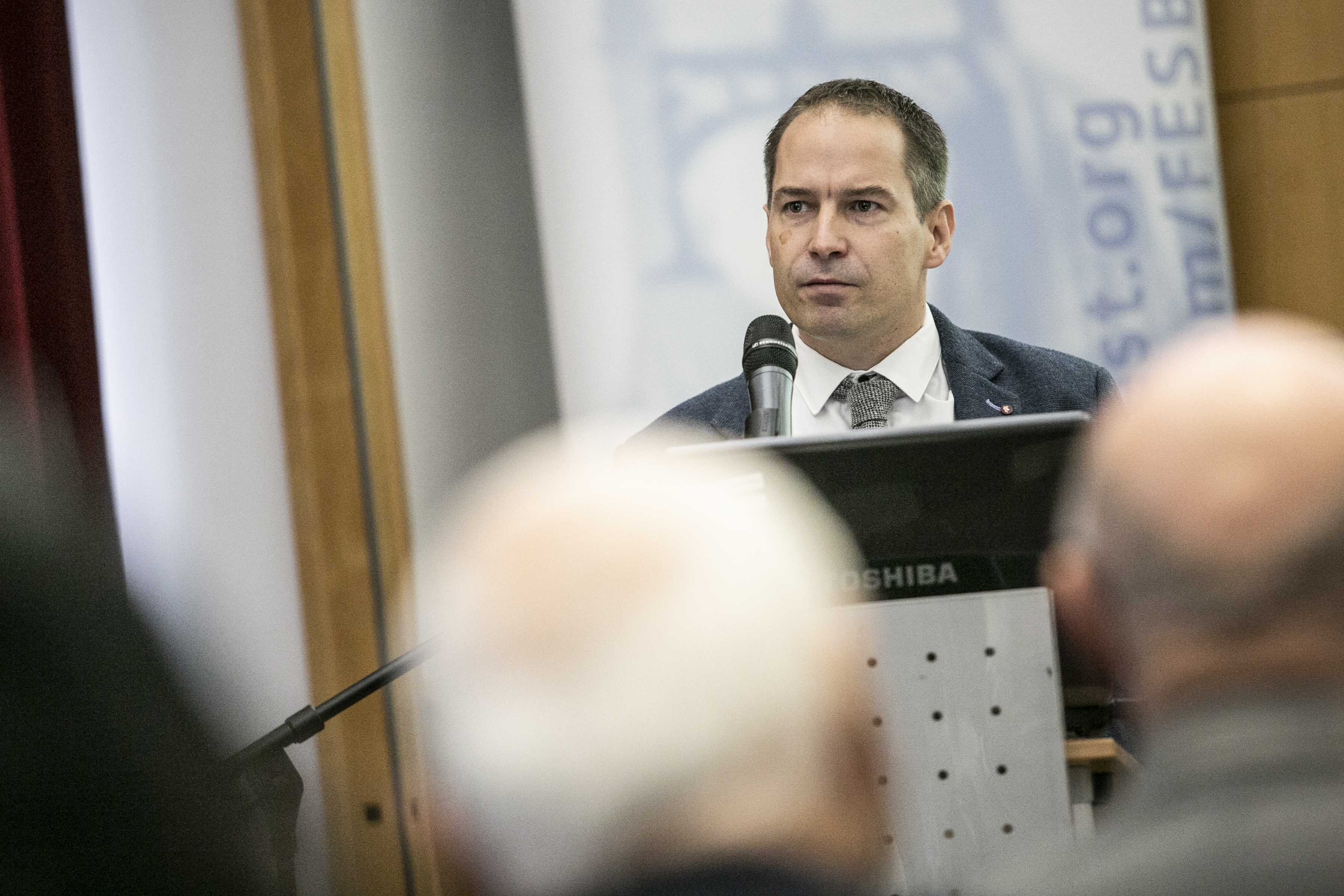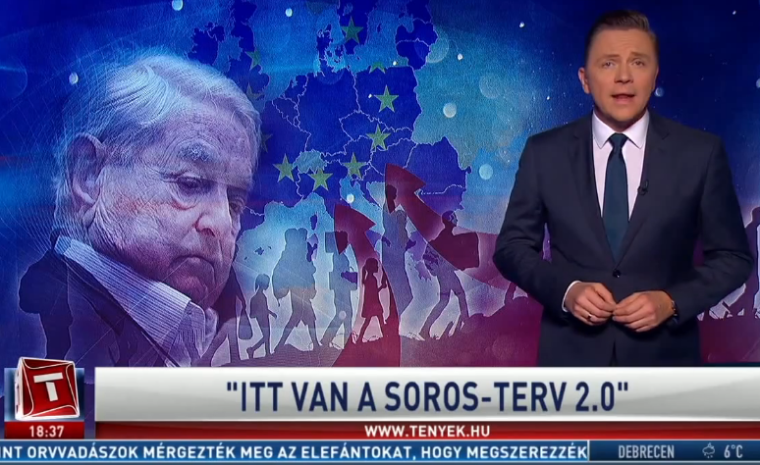No Facts, Only Interpretations: Modern Disinformation with Dr. Péter Krekó
- Stay updated on the latest news from Hungary by signing up for the free InsightHungary newsletter:
Russian president Vladimir Putin proudly announced on August 11 that a Russian laboratory had developed the world’s first Covid-19 vaccine, Sputnik V, which he said would provide effective and lasting immunity against the coronavirus.
Western news outlets reacted with scepticism, stressing that the treatment had not undergone clinical trials and that proof of its efficacy had not been demonstrated. But pro-government news outlets in Hungary began heralding the accomplishment, trumpeting claims by Putin and Russian state media that the vaccine had been proven effective and safe to use.
In the days that followed, dozens of articles in Hungarian outlets celebrated the breakthrough, proclaiming that world leaders like Rodrigo Duterte of the Philippines, Alexander Vucic of Serbia and Kassym-Jomart Tokayev of Kazakhstan were lining up for access to the Russian vaccine.
Social psychologist Dr. Péter Krekó, director of the Budapest-based think tank Political Capital, thinks the credulity of Hungary’s right-wing media toward Russia’s claims fit into a growing tendency to peddle both imported and homespun disinformation to Hungarian media consumers - creating conflicting narratives that disorient the population and lay the groundwork for pushing through authoritarian agendas.
These competing narratives create heightened polarization, a broad distrust in the media and an increasing susceptibility to conspiracy theories and fake news. In some cases, such social degeneration and disorientation is the goal itself of disinformation campaigns.
InsightHungary spoke to Dr. Krekó about modern disinformation in Hungary: its origins, aims, and political and social consequences for a small Central European country wedged between great powers.
Nothing is true, and everything is possible
InsightHungary: What is disinformation exactly, and how is it distinct from propaganda?
Dr. Péter Krekó: Disinformation contains pieces of information that the communicator knows are false, used in a context which creates a totally different picture of reality. It can be based on partially correct information, but uses it selectively to create a misleading picture of an issue. For example, Russian state-sponsored television gives a lot of attention to far-right protests in Europe, making it seem like they are the normal, everyday reality. They overemphasize these events to show their audience that Europe is full of neo-Nazis and fascists, while Russia in fact supports such parties through other means.
Propaganda, on the other hand, can be based on totally correct information. In propagandistic logic, only the outcome matters, not the process. Propaganda can best describe the communication strategy of the 20th century dictatorships. Its purpose is to take one message and beat it into people’s heads like a nail. Contemporary disinformation uses multiple messages at the same time, not to persuade the audience but to confuse them. As [British journalist and author] Peter Pomerantsev said, “Nothing is true and everything is possible.”
IH: So propaganda usually has an ideological root, but disinformation is non-ideological and is not meant to convince people, but to confuse them with contradictory information?
PK: I think everyone who uses disinformation these days is doing so from a post-ideological logic, even states that have their own ideology. I don’t think we can talk about Putin’s regime in Russia as non-ideological, their ideology is becoming more and more conservative. But when it comes to the export of disinformation, they are able to target the radical left, the radical right, anyone on the fringe, but also anyone in the mainstream. They are very flexible in how they are able to shape opinion.
Peter Pomerantsev told us at an event of the Political Capital institute that he had spoken to some Chinese spin doctors who were inspired by the works of Foucault and Derrida and the postmodern worldview where there is not one reality, but multiple realities. There are no facts, only interpretations. Modern disinformation is postmodern in the most extreme sense, not by philosophy but as an instrument of postmodernism meant to confuse the audience.
The West has lost its appeal
On August 20, at a ceremony in Budapest marking the 100th anniversary of the Treaty of Trianon, Hungarian Prime Minister Viktor Orbán said in a speech that the “unquestionable supremacy of the peoples of Europe has come to an end.” Hungary has serious doubts, Orbán said, over whether the West - which believes in “the godless cosmos, rainbow families and the settling of migrants” - would be able to restore the European continent’s leading role in the world.
“In our eyes, the West has lost its appeal,” he said.
Orbán’s consistent condemnation of the liberal West follows a similar logic to Russian disinformation, Krekó says: if the ideals of Western democracy are discredited, then only strong leaders remain to prevent their countries from descending into chaos. Both Orbán and Putin propagate a narrative of disillusionment with Western democratic models - portraying them as floundering in existential decline - while novel approaches to governance like hybrid regimes or “illiberal” authoritarian democracies remain stable and prosperous.
These ‘sharp power’ tactics, Krekó says, undermine the political systems of a target country by calling into question their legitimacy or very existence.
PK: The term ‘sharp power’ is much more useful these days than the term ‘soft power’ because modern Russian disinformation campaigns are rarely about how fantastic Russia is. It’s different from the ridiculous Soviet propaganda of the Cold War era that painted an idealistic picture about how wonderful life in the USSR was. In today’s cynical times, you can confuse your audience into believing that Western politicians are as corrupt as Eastern politicians, that they too will give up their principles for money.
If you relativize and destroy the ideals of democracy, which have been the drivers of systemic change almost everywhere in the 21th century, under what flag can you go against the regime? If you have no competing ideals, the regime can be saved even if it's not popular, because there is no longer any alternative vision.
State-sponsored disinformation exists in the United States as well, but it’s more similar to misinformation. For example, when the U.S. administration spreads the suspicion that the coronavirus is manmade and originated from a Lab in Wuhan, contradicting U.S. intelligence services. Trump is a “conspiracy theorist-in-chief”, so the Western world is not ideal either, especially in its current shape. It does not mean though that Western, democratic countries use state-sponsored disinformation the same way that Eastern autocracies do.
IH: How does Hungary fit into this use of disinformation?
PK: Hungary incorporates elements from both 21st century disinformation methods, which are increasingly coming from the East, and 20th century propaganda logic, like the anti-Soros and anti-Brussels campaigns. Orbán wants to create an authoritarian regime within the Western alliances of NATO and the European Union while enjoying all the benefits of these institutions. He doesn’t want to leave them because he knows he has much more power inside than outside. But he gravitates to the East and receives more ideological inspiration from there. The West only appears in a negative context in his latest speeches.
Orbán always says that the West is basically over and that we are disillusioned with it and doing better than them. This is a similar logic to Russian disinformation: If you destroy the ideals of the West, then [these leaders are] the only ones that remain. His methods for taking over NGOs, political parties, and the media mostly come from Eastern authoritarian countries.
Russian and Chinese disinformation finds its way to the Hungarian public not through their own means but through Hungarian state media. [Outlets like pro-government website] Origo and Hungarian state television are doing a perfect job of spreading those narratives.
IH: Would you say state-funded outlets in Hungary are engaged in disinformation?
PK: In some cases, obviously. If you switch on Hungarian television, the overwhelming majority of news stories are about George Soros and illegal migration to Hungary, which is really a non-topic since the figures are ridiculously low. They sometimes address these issues using obvious fake news pieces, like the Swedish woman who turned out to be a criminal and a liar, or when they spread obvious disinformation about Donald Tusk’s grandfather when they knew it was not true. But of course, they do not correct their mistakes.
Russia Today (RT) is far more entertaining than Hungarian television, which is highly unprofessional and so obviously propagandistic that it becomes extremely boring. Still, it has a huge impact, especially on rural and older populations. Apart from very politically conscious groups, which is a small minority, many people are just digesting what is immediately accessible.
Migration Pandemic
In early March, on the first days following the appearance of the coronavirus in Hungary, the government insisted that a small group of Iranian university students were responsible for bringing the pandemic into the country, and that they had broken quarantine orders while being held in hospital. 13 students were ultimately deported for their alleged infractions, including some who had lived in Hungary for many years. Later decisions revoked most of the deportation orders, and genetic testing showed that the first cases of the virus in Hungary had come not from Iran, but from Europe.
Still, Viktor Orbán and other senior politicians later conflated the virus with illegal immigration, arguing there were “clear connections” between the two. From the beginning, Krekó says, such political framing of the coronavirus crisis received far more emphasis in government communication than healthcare policy solutions.
One example was the decision to close Hungary’s borders to nearly all foreign travelers after September 1- with the exception of Czech, Slovak and Polish citizens that had previously made travel arrangements. Krekó says that decision, uniquely severe in the EU and criticized by the European Commission, reflects Hungary’s anti-immigration ideology but has no real basis in epidemiological defense - especially in light of exceptions granted to football fans and sport hunters visiting the country.
PK: Closing the borders and making the V4 countries an exception are measures that are based on government-fuelled disinformation. Figures are not showing that V4 countries are doing better, so they are taking policy measures that totally contradict reality and fit in with anti-immigration ideology. Orbán wants to make Hungarian society much more closed, hostile to and afraid of foreigners, because this is what can make him strong. In a situation where everyone is afraid, it’s easier to whip up these sentiments. But the government is making so many exceptions that it seems that they do not even take their own decisions seriously.
IH: The government passed a “fake news” provision which made it a criminal offense to spread false or alarming information about the pandemic. How did this play into government communication about the coronavirus?
PK: [The government] had a very controversial coronavirus fear-mongering restriction, which I think could have been used for good. If there are sites that are spreading misinformation about Covid and trying to create a panic, I think there are legitimate arguments for restricting access to them. But the government mostly [sanctioned people] that were spreading fake news and disinformation about the government as well, so these had some political logic behind them. There are many anti-vaccination sites and movements in Hungary - mask deniers, celebrity doctors pushing conspiracy theories about Covid and so on. But the authorities didn't care and don’t care. It seems like it was more important to push the message that if you loudly criticize the government, police can come and take you away, and this was broadcast primetime and I think everyone got the message.
To the government's credit, unlike most right-wing populists like Bolsonaro, Trump, Salvini and many others, Orbán did not go into science denial. The messages are contradictory, but it’s not close to alternative reality that is being built up in the United States. Virus scepticism and anti-mask behavior are not in the political mainstream.
IH: Pro-government media seems very excited about the prospect of a Russian vaccine, which is supposedly complete. What do you think about this?
PK: The Russian vaccine is really widely promoted. It’s incredible but it fits this metanarrative that the West is done and the East is coming up and that Russia will save us. Orbán has been able to use this metanarrative for both the immigration crisis and the Covid crisis as well. The EU [coronavirus] aid package is substantial and we’ve already received a lot of money, but Orbán doesn’t acknowledge it. We also received a lot of gifts from China and the Turkic Council, and [Foreign Minister Péter] Szijjártó and Orbán said this proves our Eastern Opening policy is successful.
This is disinformation because Orbán obviously knows it's not true. He knows he needs EU money, and he knows that trade relations with Eastern countries are miniscule compared to what we have with Germany and other Western countries, but this is the narrative that he wants to build.
Politicians with autocratic tendencies that want to distance themselves from the West in order to be more autonomous ultimately find themselves entrapped by Eastern interests. Being part of the Western alliance gives you more security, which is why Orbán can still go further, but it’s dangerous. Orbán’s intention is to have more autonomy, but looking at the ways he has to defend China and Russia, I’m not sure that he will have the autonomy that he dreamt of.
Tribal myths
IH: You’ve written that populist leaders create political cultures which lead to polarized, tribal political groupings where people are willing to accept lies or distortions if they believe they advance their cause. How does this manifest in Hungary?
PK: The tribal logic appears here in a way that if you believe in the cause and know this is your tribe, then you have to use information as a weapon for the greater cause. It’s the mindset of the propagandist, which is nothing new. But something new in officially democratic contexts is that more and more voters are no longer interested in what the truth is as long as it serves them.
Fake news and disinformation exist because voters themselves, members of a political tribe, feel that they have some advantage: a psychological advantage because it serves their worldview, and a political advantage because it can advance the victory of their side. If there are no established facts and no debates, it eats up all fact-based policy discourse and value-based political discourse. This is not a Hungarian phenomenon, but I think it’s extremely dangerous and can be even more destructive.
In Hungary, George Soros is part of the tribal myth. Some Fidesz supporters know that Soros is not behind every bush, but they believe that this is what needs to be done. You don’t have to blindly believe all this information, and you might even have some scepticism, but you still repeat the same messages because you know it works.
IH: Does this kind of tribalism exist in the media as well?
PK: The idea has been pushed that there is no such thing as independent media, that it can’t exist. The self-definition of pro-government journalists these days is that they don’t even want to be independent because they say that independent journalism is a lie and hypocrisy. For most of them, their understanding of their jobs is that they are soldiers in a war. (The editor-in-chief of a pro-government internet site which receives state funding recently said in an interview, “I am not a journalist…I’m the leader of this community of fighters.” - ed.)
You can more easily be a propagandist with no moral constraints if you think that every narrative has a power background which is rooted in some kind of interest. This is, again, one of the core statements of the postmodernists.
The irony of all this is that postmodern political science, which originally aimed to reveal power structures from a new leftist, anti-globalist, anti-capitalist, anti-authoritarian logic, has now turned out to be a deadly serious weapon in the hands of the enemies of freedom on the right.
IH: Has there been an increased susceptibility to conspiracy theories in Hungary in the past years?
PK: Absolutely, and all our polls show that. Anti-Semitic conspiracy theories, anti-George Soros conspiracy theories and anti-Muslim conspiracy theories are very strong in Hungarian society. Anti-governmental conspiracy theories are also very strong in the opposition camp. It’s a mindset which entraps everyone, though to a different extent.
Of course, if you say it's a conspiracy theory that Russian or Chinese interests come ahead of Hungarian interests in some governmental decisions, as an analyst I wouldn’t be able to totally contradict that.
Not every conspiracy theory is false, at least according to my definition. In increasingly authoritarian environments, you have more malign cooperative actions that are kept in secret between politicians, foreign players and businessmen. If you switch off independent institutions, weaken the constitution, destroy the independent press and attack NGOs, you can use your power in a more conspiratorial way. Conspiracy is part of politics.
This article is published as part of a project to promote independent digital media in Central and Eastern Europe funded by the National Endowment for Democracy and coordinated by Notes from Poland.






